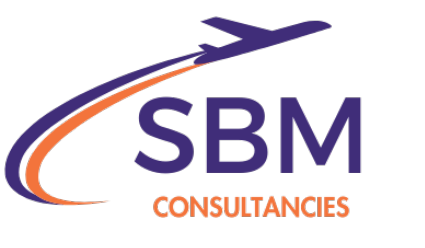What is a Business Visa?
A Business Visa is a type of visa that allows foreign nationals to enter a country for the purpose of conducting business activities, such as attending meetings, conferences, exploring investment opportunities, or negotiating deals. This visa does not generally allow the holder to engage in direct employment or work for a local company.
Why Do You Need a Business Visa?
A business visa is required for:
Conducting Business Activities: For professionals traveling to a foreign country to negotiate contracts, meet with clients, or attend industry events.
Investment and Entrepreneurship: For entrepreneurs or investors wishing to explore opportunities or set up businesses in the host country.
Networking and Conferences: To attend business conferences, seminars, workshops, or exhibitions related to one’s industry.
Legitimate Legal Entry: A business visa ensures that the traveler’s entry is lawful and is solely for business purposes, without engaging in unauthorized work or employment.
Eligibility Criteria for a Business Visa
The eligibility requirements for a business visa depend on the country, but the common criteria usually include:


Duration of Stay?
Long-term Business Visas: Can range from 1 to 5 years, with extensions available in some cases.
Investor/Entrepreneur Visas: Often issued for a longer duration (2-5 years), with pathways to permanent residency or citizenship depending on the investment and business activity.
Business Visa Fees?
Fees can range from:
Short-term business visa: $50 - $250
Investor or Entrepreneur visa: $500 - $5,000 or more, depending on the investment threshold.
Business Visa Denials?
Insufficient Documentation: Missing or incorrect documents can result in denial.
Inability to Prove Financial Stability: If the applicant cannot prove they have enough funds to cover their business activities, the application may be rejected.
Inconsistent Information: Providing contradictory or false information on the application form can lead to a visa denial.
Security or Health Concerns: Applicants with criminal records or health issues may face visa refusal.
Types of Business Visas

Short-term Business Visa:
Duration: Typically valid for up to 90 days, though some countries may issue longer or shorter-term visas.
Key Features: Does not permit employment in the host country, but business-related activities such as meetings, interviews, and market exploration are allowed.
Entrepreneur Visa:
Duration: Varies, but often leads to long-term stays or even permanent residency if the business is successful.
Key Features: The entrepreneur must show proof of business plans, capital, and the potential for creating jobs or contributing to the economy.
Long-term Business Visa:
Duration: Can range from 1 to 5 years, depending on the country’s immigration policy.
Key Features: Some countries may allow the holder to bring dependents or apply for permanent residency after a set number of years.
Freelancer or Self-Employed Visa
Duration: The length of stay is usually up to a year, with options for extensions.
Key Features: Requires proof of clients, contracts, or business plans that demonstrate self-employment or freelance work in the host country.
Investor Visa
Duration: Often issued for long periods (several years) or can lead to permanent residency if certain investment criteria are met.
Key Features: The applicant is usually required to demonstrate a substantial financial investment (often in the hundreds of thousands or millions) and may be granted the right to live and work in the country as a business investor.
Important Notes
Overstaying a Business Visa: Overstaying your visa can lead to penalties, deportation, and difficulty obtaining future visas.
Investor and Entrepreneur Pathways: Many countries offer pathways to permanent residency or citizenship for investors and entrepreneurs who contribute to the local economy.


